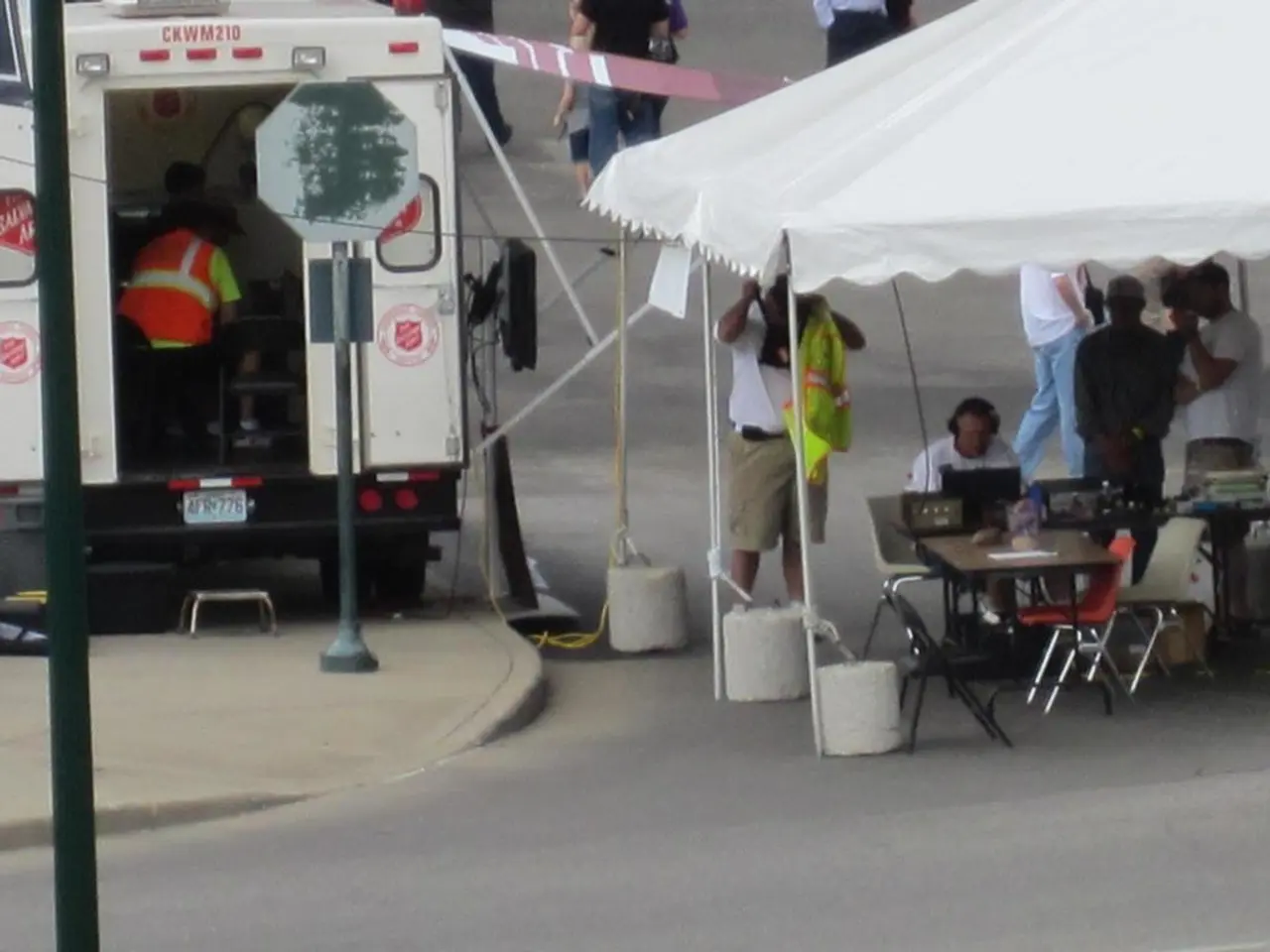Struggling Healthcare System in Libya Forces Residents to Emigrate
In the heart of North Africa, Libya continues to grapple with political instability and conflict, a situation that has severely impacted its healthcare system. A poignant example of this is the case of 7-year-old Sohan Aboulsoud, who suffers from cystic fibrosis.
Since the overthrow of Muammar Gaddafi in 2011, Libya has been in political chaos, marked by severe fragmentation and conflict. The current situation, particularly in Tripoli, has been further aggravated by intense armed clashes between rival factions since May 2025. These clashes have targeted key infrastructure, including hospitals, leading to shortages of medicines and electricity, and outbreaks of infectious diseases.
The Government of National Unity (GNU), based in Tripoli, has promised to cover the costs of Sohan's treatment in Italy, but no official has called since, and no concrete steps have been taken. Sohan's family, desperate for medical help, attempted to travel to Italy by boat on June 25.
The healthcare infrastructure in Libya has been severely impaired, leading to overcrowded hospitals, shortages of essential medicines, interrupted electricity supply, and economic hardship. For patients like Sohan, who require consistent, specialized medical care and access to costly medications, these conditions mean facing tremendous barriers to adequate treatment. The collapsing healthcare system and limited resources severely reduce the capacity to diagnose, manage, and treat inherited genetic disorders effectively.
The World Health Organization reported in December 2021 that about a third of healthcare facilities in the southern and eastern regions of Libya are not functional. More than 60 Libyan families have officially requested cystic fibrosis treatment from the Libyan Ministry of Health, and families with children suffering from the condition have protested in Tripoli, demanding access to medication and diagnostic centres.
Tarik Lamloum, head of the Libyan human rights organization Beladi, believes that instead of glorifying a case where a family had to cross the sea, the state should have provided care within the country. He stated that Libyan government support often ends after one initial political comment.
Sohan's mother, Khawla Nail, shared a photo of her daughter on a smuggler's boat, which went viral. Upon arrival on Italy's Lampedusa island, the family was housed in a shelter without air conditioning. This is a stark reminder of the challenges faced by families in similar situations, as one family has already contacted Lamloum asking about the journey details.
It is important to note that reliable data on the number of missing migrants is often unavailable. The Missing Migrants Project by the International Organization for Migration reports that more than 63,000 irregular migrants have died or gone missing since 2014, with the actual number likely significantly higher.
As political stalemates continue and rival administrations compete for power, the United Nations Special Representative has urged all parties to negotiate in good faith towards a roadmap for political reconciliation and elections. Until then, the humanitarian crisis in Libya, particularly in its healthcare system, will continue to deepen.
- In the midst of Libya's political instability and conflict, human rights organizations like Beladi are demanding that the government prioritize healthcare, instead of allowing families to risk their lives migrating in search of treatment.
- The European media has been focusing on the plight of migrants like Sohan Aboulsoud, a 7-year-old boy with cystic fibrosis, who, despite the Government of National Unity's promises, is currently residing in a shelter in Italy without air conditioning.
- As global media reports on the impact of conflict on Libya's healthcare system, international bodies like the World Health Organization are emphasizing the need for urgent reform and massive investment in healthcare infrastructure.
- With the healthcare system struggling to manage inherited genetic disorders like cystic fibrosis, specialists in science and medicine are calling for the development of local treatment options to address the unique healthcare needs of Libya's population.
- Politicians and policymakers around the world are also paying attention to the crisis unfolding in Libya, with some advocating for increased humanitarian aid and support for families with children suffering from cystic fibrosis.
- In addition to the immediate healthcare crisis, Libya's political turmoil is having far-reaching effects on family health, especially for men, women, and children who are at increased risk of developing health-and-wellness issues due to the stresses of migration and the lack of adequate care.
- As the number of migrants risking their lives for better medical care continues to rise, parenting groups and advocates in Europe are calling on governments to address the issues driving people to leave their homes, rather than just band-aid solutions for those who make the dangerous journey.
- With the Missing Migrants Project reporting that over 63,000 migrants have died or gone missing since 2014, the international community must recognize the urgent need for a comprehensive solution to the migration crisis and work towards establishing a peaceful and stable political environment in Libya, which would help mitigate the need for families to risk everything for medical care.




